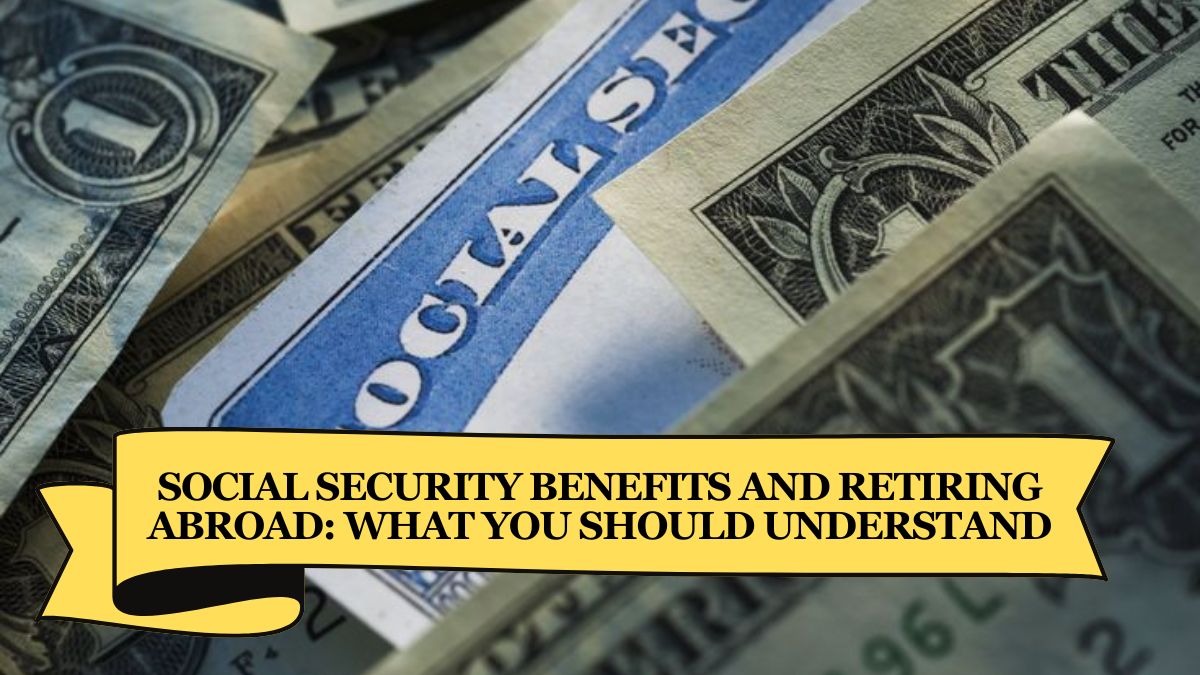Retiring abroad is an exciting option for many people, especially for those looking to explore new cultures or enjoy a more affordable cost of living. However, if you’re receiving or expecting to receive Social Security benefits, it’s important to understand how living outside the U.S. could affect your payments. In this article, we will go through the most important things you need to know about Social Security if you plan to move abroad, ensuring that you can still enjoy your benefits no matter where you retire.
Social Security Payments Abroad: What You Need to Know
When you retire abroad, receiving your Social Security benefits can be tricky. While some countries allow you to continue receiving your payments, there are exceptions. It is essential to know which countries allow Social Security payments and which ones do not. Some places like Cuba and North Korea have strict sanctions, preventing any U.S. citizens from receiving payments. On the other hand, there are countries with agreements with the U.S. that make the process smoother. Understanding these rules will help you avoid unnecessary confusion.
Exceptions to the “Abroad” Rule
Certain U.S. territories like Puerto Rico, Guam, and the U.S. Virgin Islands are not considered “abroad” when it comes to Social Security. If you move to any of these territories, you can continue receiving your Social Security benefits without any issues. These areas are treated as part of the U.S., and the rules for receiving payments are the same as if you were living in any other state.
Sanctions Against Some Countries
If you are considering retiring in countries like Cuba or North Korea, you will not be able to receive Social Security benefits due to U.S. government sanctions. These countries have specific restrictions in place, and the U.S. Treasury Department does not allow any payments to U.S. citizens living there. However, if you decide to move back to the U.S. or leave these countries, your payments will be held until you are able to access them.
Restricted Payments in Certain Countries
There are some countries where you may face restrictions when trying to receive Social Security payments. These countries include Azerbaijan, Belarus, Kazakhstan, and others in Central Asia. While receiving payments is not impossible, you may face limitations or conditions. If you plan to live in one of these countries, it’s a good idea to use the Payments Abroad Screening Tool, which will help you determine whether you can get your benefits there.
Social Security Agreements with Certain Countries
One of the best ways to ensure you can receive your Social Security payments without problems is to move to a country that has a Social Security agreement with the U.S. Countries like Canada, the United Kingdom, Germany, France, and Australia have agreements that make it easier to receive your benefits. If you are planning to retire in any of these countries, you can rest easy knowing that your Social Security payments will be easily accessible.
Important Information You Must Report
Regardless of where you live, it’s important to stay in touch with the Social Security Administration (SSA). You must report certain life changes to ensure that you remain eligible for benefits. These include changes in your address, your work status, or if you experience changes in your health, such as improvements in a disability. It’s also important to report any changes in your family situation, such as a marriage or divorce, the adoption of a child, or the death of a family member. Keeping the SSA informed will prevent any disruptions in your payments.
Temporary Living Abroad and Your Benefits
If you live abroad temporarily, you may be able to continue receiving your benefits for up to six months. The clock starts ticking once you’ve been out of the U.S. for 30 days in a row. If you stay abroad for less than six months, you will still get your payments. However, if you live outside the U.S. for more than six months, you will need to return to the U.S. for at least one full year to reinstate your Social Security benefits.
Receiving Social Security via Direct Deposit
When living abroad, having access to your Social Security benefits through direct deposit is a convenient option. The SSA pays Social Security benefits through direct deposit, so you need to ensure that your bank or financial institution can handle international deposits. It is essential to check with your bank to confirm that they have an agreement with the U.S. to receive payments. If you do not fill out the SSA’s required forms, you risk losing your benefits, so always make sure to keep everything up to date.
Conclusion
Retiring abroad can be an exciting and life-changing experience, but it’s crucial to understand how your Social Security benefits will be affected. Depending on the country you choose, your payments may be affected by sanctions or restrictions. However, many countries have agreements with the U.S. that make it easy to receive your benefits. By staying in touch with the SSA and keeping them informed of any life changes, you can continue to enjoy your benefits while living abroad. Make sure to plan ahead and ensure you have access to direct deposit to keep your retirement smooth and stress-free.
Must Visit: California State Online

